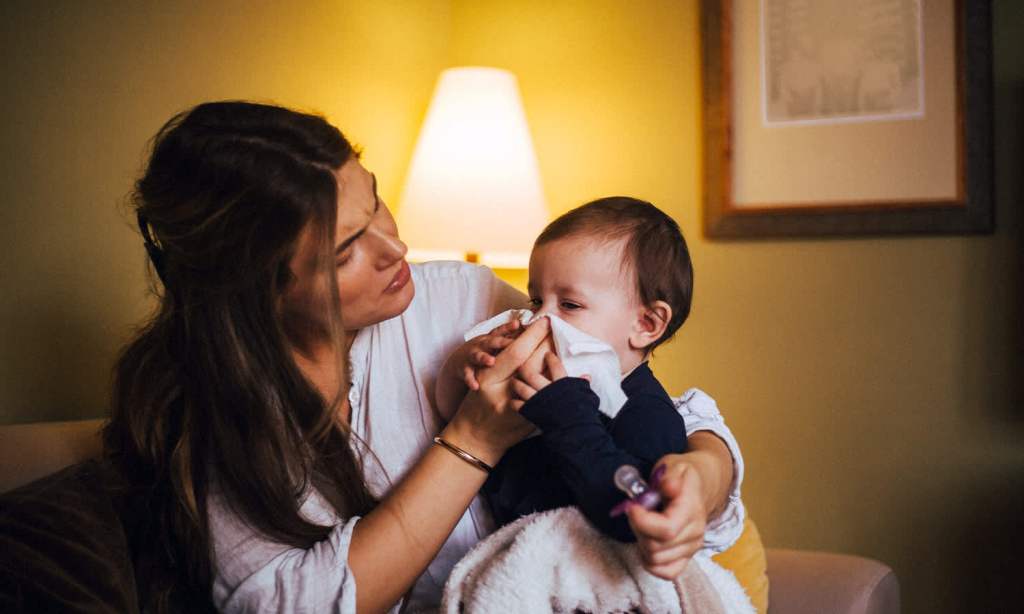Scientists have long cautioned that lockdowns and COVID healthcare restrictions would lead to a later return of other viruses. The logic here is that, in limiting the spread of COVID, we also limited the spread of almost all other infections.
New research from the University of Sydney however has shown that one particular virus sharply impacted by the lockdowns returned faster, in far greater numbers, and with an interesting genetic shift.
RSV, otherwise known as Respiratory Syncytial Virus, is a group of viruses that cause mainly minor illnesses and infections like colds. While most infections aren’t anything to worry about, RSV can be dangerous and even fatal for certain populations, particularly young children, elderly people, and those who are already immunocompromised or ill.
Each year, RSV causes an estimated 3.2 million hospital admissions and 118,200 deaths in children under five years of age across the world. These are mainly in low-and-middle-income countries, but Australia gets its fair share too.
RSV is normally a seasonal thing, appearing in Australia in Autumn and winter and peaking in June-July, before the start of the flu season. However, COVID restrictions appear to have turned things on their head.
The new paper, published by a team of infectious disease experts at the University of Sydney’s Institute for Infectious Diseases, found that lockdowns created a summer spike of RSV cases in Australia, as we emerged out of them, as well as regional variations of the virus.
Two strains of RSV, one in the East and one in the West, appear to have emerged, with the Western one being caused by the isolation of Western Australia with its border closures. Although the virus doesn’t appear to be any more deadly, researchers are concerned as the number of cases seems to be increasing rapidly as we move into winter.
In NSW, there were 1140 RSV cases in the week ending May 22, up from 766 the previous week and 508 the week before that, according to NSW Health. While there was an outbreak of RSV and other cold viruses in the summer, lead researcher Dr John-Sebastian Eden has said that the current spike is “completely unprecedented.”
“RSV is more commonly a childhood illness, and even in lockdown there was a lot of effort to keep childcare open; you only need a small amount of virus to build up a chain of transmission,” he said.
Other new data, recently published in Canada, has also shown that RSV immunity is relatively short-lived, and that new or expectant mothers are now unlikely to pass on immunity to RSV to their babies. This could be an issue as the disease is most severe in young children.
Symptoms of RSV
An RSV infection is what you would expect from a standard cold: fevers, coughing, a runny nose, shortness of breath, and fatigue.
In that sense, a mild RSV infection could be fairly indistinguishable from a mild COVID infection. However, unlike COVID-19, young children under the age of 5 are far more susceptible to it. This is because it is a respiratory virus, and young children and babies have much smaller airways than adults.
RSV is in fact the leading cause of lung infections in children and commonly causes bronchiolitis.
Signs to watch out for if you’ve got young kids with a bit of a cold are high fevers, a loss of appetite, wheezing, and difficulty breathing.
In normal times, almost all kids will have had an RSV infection by the age of two. Babies born during the COVID era however have likely not had an RSV infection yet, and so they don’t have built up immunity to the virus. They will also likely have limited immunity passed on to them by their mothers who may not have had an RSV infection in the months leading up to birth and breastfeeding.
An RSV Vaccine
Unlike COVID and the flu, there is currently no vaccine to prevent RSV infection. Once someone has the virus, the best we can offer is oxygen and fluids in hospital.
Scientists at major pharmaceutical companies are however competing to create the first RSV vaccines, with both Pfizer and Moderna trialling their vaccines for this illness at present. This has been a goal for scientists for over half a century and we do appear to be closing in on getting one.
One of the key issues for protecting young children and babies is that the first two months of life are the most dangerous when it comes to RSV and vaccines aren’t able to be given before this time. Babies’ immune systems also do not appear to respond very robustly to these vaccine trials as compared to adults.
One solution is to immunise the mother in the months leading up to birth and, to this end, Pfizer’s Phase III vaccine trial has shown good results in being able to increase the levels of RSV antibodies in pregnant mothers and babies with an 85% efficacy rate for protection.
Given the global rise of RSV following the pandemic, authorities are prioritising the availability of RSV vaccines, with Moderna’s offer being fast-tracked by the FDA in America. It will likely be some months, or potentially years, before RSV vaccines are readily available globally, but they are definitely on their way.
Read more stories from The Latch and subscribe to our email newsletter.







